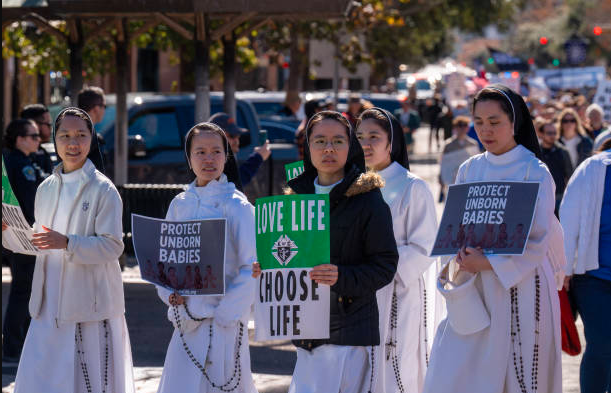Tennessee state legislators took action on Tuesday to advance a bill that aims to prohibit individuals from facilitating minors’ access to abortion without parental permission. This bill has been referred to as “abortion trafficking” by its proponents.
A proposed bill, which has now advanced out of a state house subcommittee after a hearing, could result in a prison sentence of three to 15 years for individuals who illegally assist a pregnant unemancipated minor in obtaining an abortion.
Despite Tennessee’s existing strict abortion laws, similar to those in many other states in the southern and midwestern regions of the United States, there is ongoing frustration among those who oppose abortion due to the continued occurrence of abortions following the overturning of Roe v Wade by the US supreme court in 2022.
Certain individuals have chosen to travel to different states to undergo the procedure, while supporters of abortion rights are providing abortion pills through unofficial channels to enable individuals to “self-manage” abortions in the comfort of their own homes.
Tennessee Bill Tightens Rules on Self-Administered Abortion

According to medical experts, it is generally considered safe to use pills for self-administered abortions during the early stages of pregnancy. During the Tuesday hearing, Jason Zachary, a Republican state representative and the bill’s sponsor, emphasized the significance of the bill in protecting “parental rights.”
“In Tennessee, it is required to have parental permission before seeking medical treatment for a child under 18,” Zachary explained. “According to the proposed legislation, adults would be required to obtain parental consent before taking a minor who is not their child for any abortion-related procedure.”
During another part of the hearing, Zachary made his stance on abortion clear: “I have reservations about abortion.” Done. That’s the end of the story. He later stated: “My intention was to safeguard the lives of all individuals – both born and unborn.”
The bill includes a provision that would enable individuals to pursue legal action for “wrongful death” following an abortion. This provision implies that the legal status of a fetus is being considered.
The issue of establishing legal personhood for fetuses has long been a goal of those who oppose abortion. If successful, this could have significant implications for a wide range of US laws, potentially creating a conflict between the rights of pregnant women and the rights of the fetuses they are carrying.
